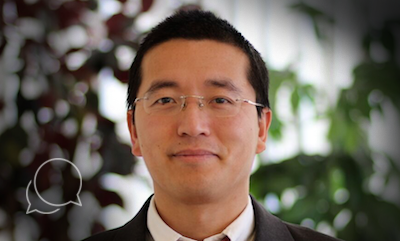‘A Different Type of Value’.

Ziming Xuan Associate Professor of Community Health Sciences
Age: 40
Hometown: Guangzhou, China
Breakfast: Oatmeal (“If I have about 30 minutes in the morning.”)
You’re part of the new Violence Prevention Research Unit at SPH. How do you feel about this new program and the support it’s getting?
I’m very excited. I’m generally interested in interventions that can influence population health, and that’s what injury prevention policies and programs can do for many people in this country.
I was trained as a social epidemiologist, and I’m interested in socio-contextual determinants of health, and primarily health policies because I think they are modifiable and actionable strategies that can improve health or reduce health risk at a population level. That is my general approach, and I’m very excited that the Dean and other colleagues are interested and recognizing that the firearm epidemic is an important public health problem—especially given that it has been underfunded for a long time.
[Gun violence] is affecting millions, but it’s been barely funded considering how big an impact it has on the population. The funding is very limited, so I’m excited that there’s more of a concerted effort now to tackle this problem. It is a road less travelled by, but I hope the efforts that we are making together today will make a difference in the future.
Does gun violence research being so underfunded ever feel like a deterrent for you?
If you talk to people who have been there and done that, usually the first thing they will say is that this is an underfunded area, that you’re not going to have a lot of research resources. That’s the common precaution that people tend to give to those who are entering.
For me as someone who is now interested in this area, I think funding-wise, yes, it’s challenging, but at the same time it’s very meaningful. You’re rewarded by feeling that you are making a difference, not in a material sense but in the value that your research is going to provide to inform people who are going to make decisions and policies to help the population at large. That is a different type of value that I would look at—it’s rewarding indeed.
What do you think of SPH shifting more of its attention to gun violence?
It’s very exciting. The research on gun violence has been quite limited, but SPH just hosted a symposium, and I believe there will be more focused and concerted efforts in both research and advocacy, for researchers and professionals and other stakeholders to be involved. For a problem as big as gun violence, we really need to have everybody, so I’m very happy that the School is taking a leading role in making this happen. With the Activist Lab led by Harold Cox, and the Dean, and other colleagues, it’s exciting to see things pointing in a very good direction.
What brought you to public health?
I was interested in health communication initially when I was pursuing my master’s degree. After that I was working at the University of Connecticut Health Center, and that was the first time that I entered the realm of public health and I recognized how health—especially of those who are socio-economically disadvantaged—can be affected by many modifiable social determinants. At that time I was doing a study looking at how alcohol products were advertised in these communities, specifically malt liquor products, which were marketed very differently from beer. I was very interested, and I decided to pursue doctoral training, to do more and better research, because I felt like that could pave the way for an interesting and meaningful career in public health. I felt very fortunate to be accepted at the Harvard School of Public Health in 2004, and then started my faculty career at SPH in 2010.
How was your first day as a faculty member at SPH?
It was a busy day, and I felt like I was ready to work on different things, but then at the same time I also wanted to remind myself that good things take time, and I have to focus on one thing at a time.
I felt very supported. Having good mentors is very important, especially when people are very new in their career.
Who are your mentors?
The chair, Rich Saitz, is a great mentor. I have a very good friend, Tim Naimi, who’s a great mentor, and then I have Bill DeJong from the department, Mike Siegel, Gene Declercq—many supportive colleagues. And good mentors from other universities, like Tom Babor from the University of Connecticut. The Dean is also very supportive—sometimes I get emails from him on the weekends, “I saw your article, it’s great work,” very supportive, kind words. I could list even more!
How do you think the results of the presidential election will affect your work?
Obviously it’s a pretty controversial issue, and because of the election there are a lot of uncertainties. Personally, I have faith in the US government, which has the responsibility to do the right thing, to help our citizens—especially vulnerable populations like youth—to prevent further gun violence. I think it’s important for me to keep the faith, and do my best work to further the research that matters most. That has been my belief, but indeed there are a lot of uncertainties going forward.
Interview by Michelle Samuels